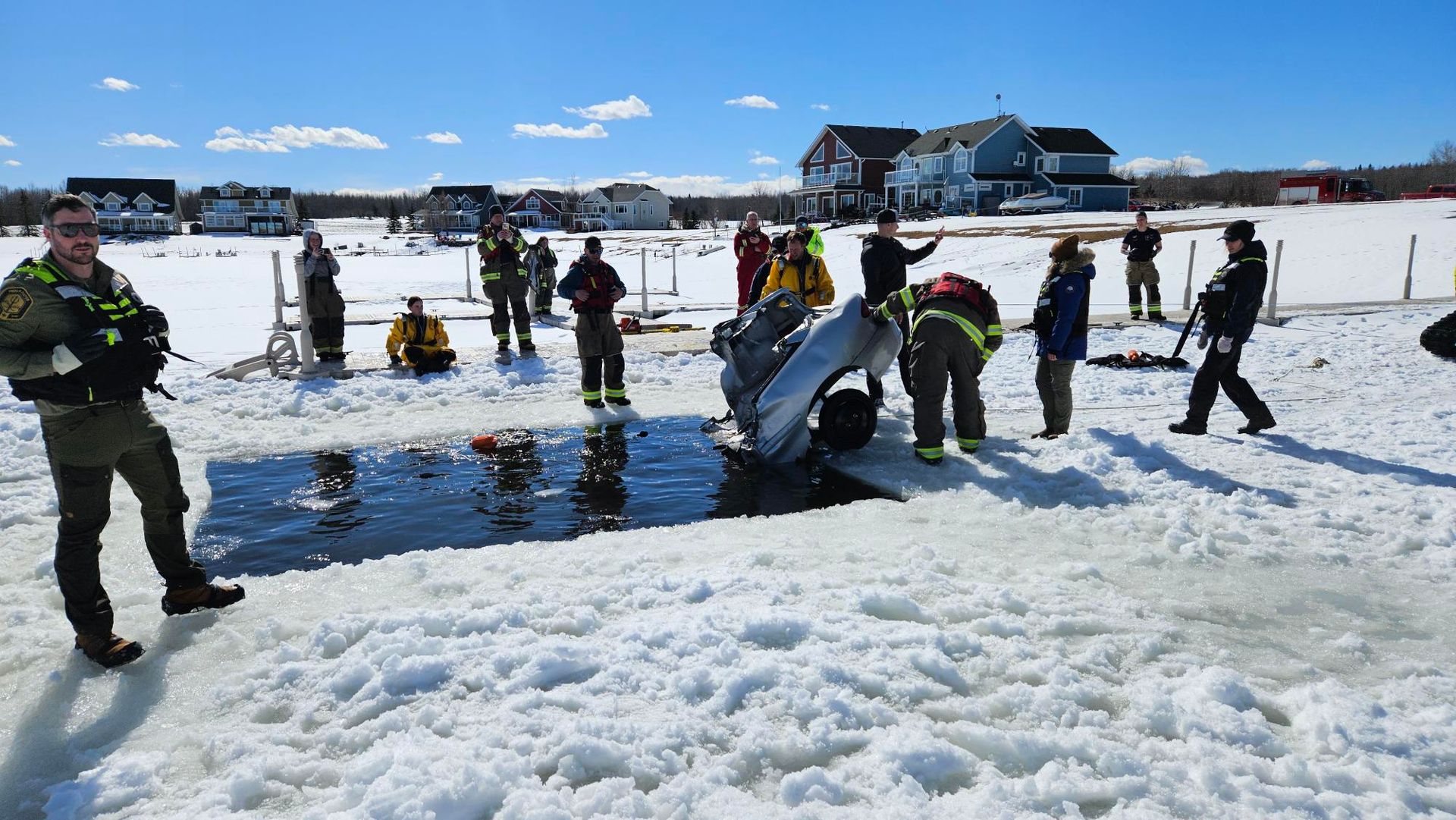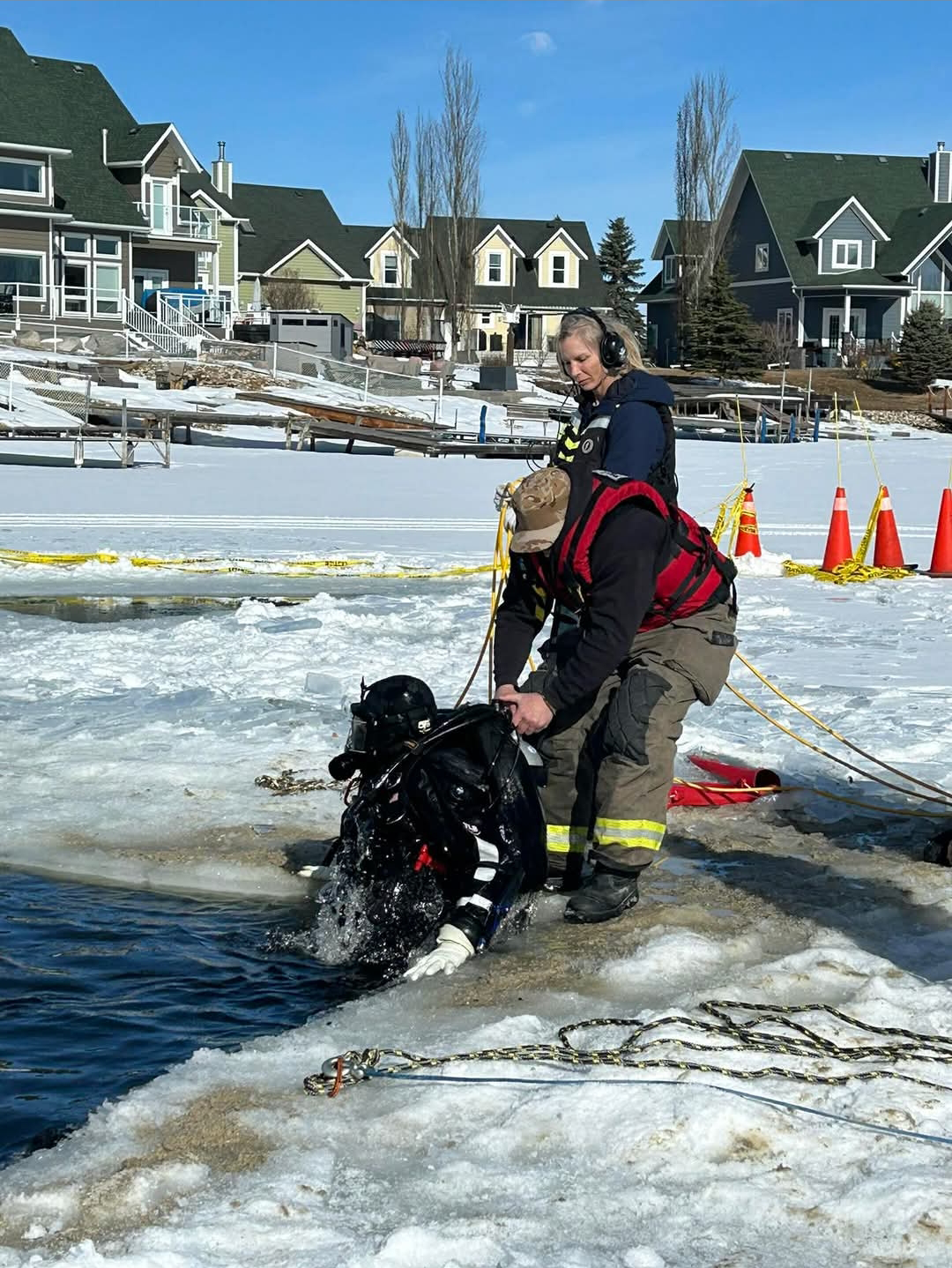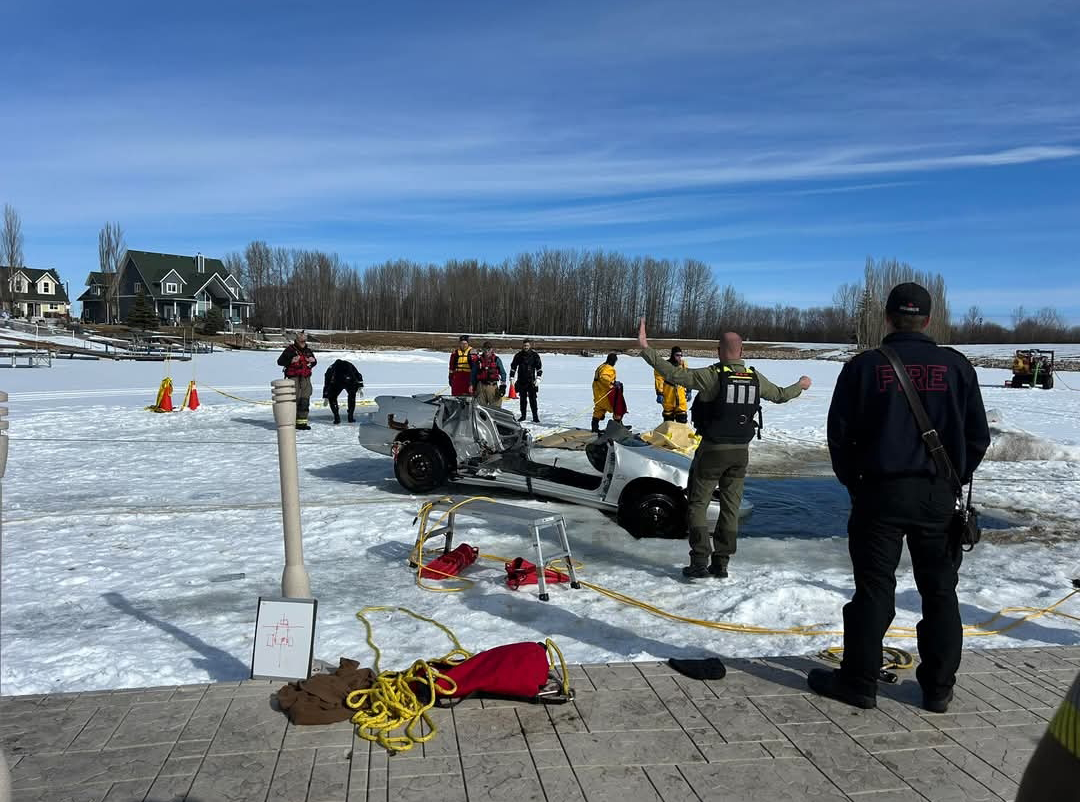Community Visionaries: Central Alberta Rescue Diving Society
The volunteer dive team bringing peace back to Albertans

"Bringing loved ones home is the most important goal. Not knowing where someone is gives people a terrible feeling of hopelessness. We do what we do to give families closure."
For families facing the unimaginable loss of a loved one in Alberta’s waterways, they’re left in limbo, searching for answers, clinging to hope and dreading the unknown. For these families, closure often comes in the form of a dedicated team of volunteers — trained professionals who navigate the depths, not for adventure, but for recovery.
The Central Alberta Rescue Diving Society (CARDS), also known as the Underwater Search Team, is that team. Since 2013, this group has been committed to bringing peace to grieving families, a mission that extends across 663,000 square kilometres of Alberta’s lakes and rivers.
The genesis of CARDS was a heartbreaking event: the drowning of two young men in Coal Lake, near Wetaskiwin. At the time, Alberta lacked a dedicated dive recovery team, leaving Camrose firefighters with scuba training to attempt the search. When their efforts were unsuccessful, the need for a specialized team became clear.
From that moment, CARDS was formed with a singular purpose: to ensure that no family would have to wait indefinitely for answers. “Bringing loved ones home is the most important goal,” says Luke Jevne, Chief of Operations for CARDS. “Not knowing where someone is gives people a terrible feeling of hopelessness. We do what we do to give families closure.”
These photos were taken during a training exercise with CARDS at Pigeon Lake. The team worked together with Southside Pigeon Lake (SPL) and Mulhurst fire crews to safely recover a vehicle that had dropped through the ice.
As the only certified underwater recovery dive team in Alberta outside of the Calgary, Lethbridge and Medicine Hat’s municipal fire departments that only operate within city limits, CARDS answers calls from across the province. “Our team is spread out across Alberta, with some members in places like Airdrie, Cold Lake, Fort Saskatchewan and Millet,” says Luke. Despite the challenge of having a spread-out team without a proper a home base for equipment, CARDS has solidified its role as Alberta’s go-to dive recovery team for law enforcement, having contracts with both the RCMP and Edmonton Police Service.
Unlike traditional rescue teams, CARDS is primarily a recovery unit. By the time their expertise is requested, the window for rescue has often passed. “It’s a sad reality,” explains Luke. “With the distances we travel, by the time we arrive, the situation has changed. We’re there to bring closure, to help loved ones find peace.”
The process of deploying the dive team is methodical and precise. When called by law enforcement, Luke and his team assess availability, gather resources and set out to the site. Before divers enter the water, they scan the area using sonar to identify targets of interest. Once a search plan is in place, the team enters Alberta’s murky waters, sometimes in the dead of winter. “This isn’t beautiful, pristine water,” Jevne says. “It’s cold, it’s dark and it’s dangerous.”
"A lot of our equipment and training comes out of our own personal dollars. When we have a diver in the water, it’s roughly $27,000 worth of equipment and training they’re jumping in with."
Because Alberta remains the only province in Canada without a fully funded recovery dive team, CARDS operates solely through volunteer efforts and community support. “We have a team across Alberta made up of 12 divers as well as a board of five volunteers,” says Luke. Most volunteers come from an emergency services background and work full time as firefighters, police officers or EMS. “When we have a diver in the water, it’s roughly $27,000 worth of equipment and training they’re jumping in with, plus their lost wages and commuting costs,” says Luke.
Despite their critical role, CARDS operates on limited funding, relying on grants and community donations to sustain their work. “Because the funding we receive from the government is a drop in the bucket, a lot of our equipment and training comes out of our own personal dollars,” Luke explains. This year, CARDS received a Vision Credit Union Helping Hands Grant, providing much-needed equipment and resources. “The grant from Vision is going to make a big difference for us,” Luke says. “Every dollar counts.”
For families in crisis, CARDS’ work is invaluable. And for Alberta, this team represents community service at its finest: stepping forward when others can’t, diving into the unknown, and ensuring no one is left behind.
To learn more and donate to CARDS, visit their website: underwatersearchteam.com






